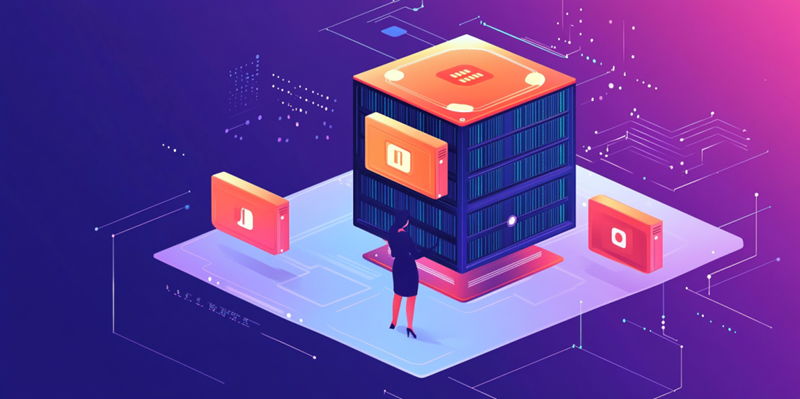Huawei and Roland Berger launched a new white paper titled “Future-proof Data Storage Power.” This white paper provides a comprehensive analysis of the significant transition towards future-proof storage in the context of the zettabyte era and the AI revolution. As digital technologies continue to evolve rapidly, there is an increasing need for robust storage solutions to support the vast amounts of data generated by AI technologies. The report underscores that future-proof storage is poised to play a crucial role in propelling the global economy during the forthcoming “intelligence era.”
The Evolution of Data Storage Industry
Huawei’s perspective on the data storage industry emphasizes the monumental shift anticipated due to AI’s rapid advancements. Peter Zhou, Huawei’s head of data storage products, highlights the importance of forward-thinking digital infrastructure and emphasizes the necessity for storage solutions that enhance computing, intelligence, and resilience. According to Zhou, these changes are set to significantly boost the intelligent economy, transforming how data is managed and utilized on a global scale.
The foundation of future-proof storage lies in transitioning from traditional Hard Disk Drives (HDDs) to the more advanced Solid-State Drives (SSDs). These SSDs are renowned for their superior speed and reliability, establishing a new industry standard described by Huawei as “ubiquity.” Despite this, traditional HDDs continue to dominate the market, constituting about 70 percent of usage. However, industry consensus points towards SSDs eventually becoming more cost-effective through scaling and leveraging advanced methodologies like data compression and the implementation of high-density hardware. This transition is essential to meeting the robust needs of an AI-driven economy.
The Intelligent Economy and Its Components
The concept of an “Intelligent Economy” presented in the white paper expounds on how data, energy, and technology will emerge as foundational elements. The report elucidates the transformative role that generalized intelligence will play in reshaping enterprise data governance. AI agents are expected to significantly drive productivity, elevate data as a vital economic asset, and intensify the necessity for sophisticated cybersecurity measures as well as eco-friendly power sources.
Huawei’s vision encompasses a deep convergence of the digital and physical worlds, advocating for the integration of advanced technologies like 6G and AI-generated content. This ubiquitous integration is projected to bolster productivity, improve societal welfare, and deliver notable environmental benefits. By promoting a synergy between virtual and physical industries, Huawei envisions a future where technological advancements not only drive economic growth but also contribute to overall societal improvement.
Strategic Imperatives for Data Center Operators
The narrative of the white paper further explores the imperative actions for data center operators and stakeholders. Embracing principles such as scale planning, full-stack architecture, robust performance requirements, strict security measures, and cost-effectiveness at the solution level is critical. Additionally, native AI empowerment is predicated as a key strategic imperative. A tailored approach is considered necessary for different regions, leading to the categorization of countries based on their storage infrastructure maturity into Advanced, Traditional, Boutique, and Emerging labels.
Advanced countries, such as the USA, UK, Singapore, and South Africa, boast high SSD penetration and superior storage infrastructure. Conversely, Traditional countries like France and Japan exhibit global efficiency but show minimal SSD usage. Boutique countries, including Colombia and Brazil, demonstrate high SSD penetration rates despite limited storage stability. Emerging countries like China and Poland still predominantly rely on traditional mechanical storage methods, despite significant technological advancements. Each of these categories requires a nuanced approach to transitioning towards future-proof data storage solutions.
Metrics System for Future-Proof Storage
The introduction of a new Metrics System by Huawei aims to facilitate the advancement of future-proof storage initiatives. This system assesses regional, data center, and storage product levels, focusing on criteria such as magnitude, efficiency, groundwork, and advancement. The findings from this system provide a strategic framework for stakeholders to pilot innovative models for future-proof storage, especially within the public sector.
Damien Dujacquier of Roland Berger adds context to this forward-looking storage paradigm by referencing global trends such as the explosive growth in data volumes, the burgeoning data economy, and the emergence of AI applications. Moreover, he points out the complex cybersecurity demands and the significant shift towards low-carbon development within the digital industry. These trends highlight the pressing need for nations to adopt future-proof storage solutions to stay competitive on the global stage.
Driving the Intelligent Economy with Data Storage
Huawei, in collaboration with Roland Berger, introduced a new white paper titled “Future-proof Data Storage Power.” This white paper offers an in-depth analysis of the critical transition towards resilient and adaptable storage systems, especially pertinent in the context of the zettabyte era and the AI revolution. As digital technologies advance at breakneck speed, the need for robust and scalable storage solutions becomes more urgent to manage the immense amounts of data generated by AI technologies. The report highlights the importance of future-proof storage solutions, asserting that they will play a pivotal role in driving the global economy forward in the imminent “intelligence era.” This new era will be characterized by increased reliance on AI-driven technologies and massive data processing requirements. The insights provided in the white paper are aimed at helping organizations and industries prepare for the challenges and opportunities that come with this technological evolution, ensuring that they remain competitive and efficient in the ever-changing digital landscape.

